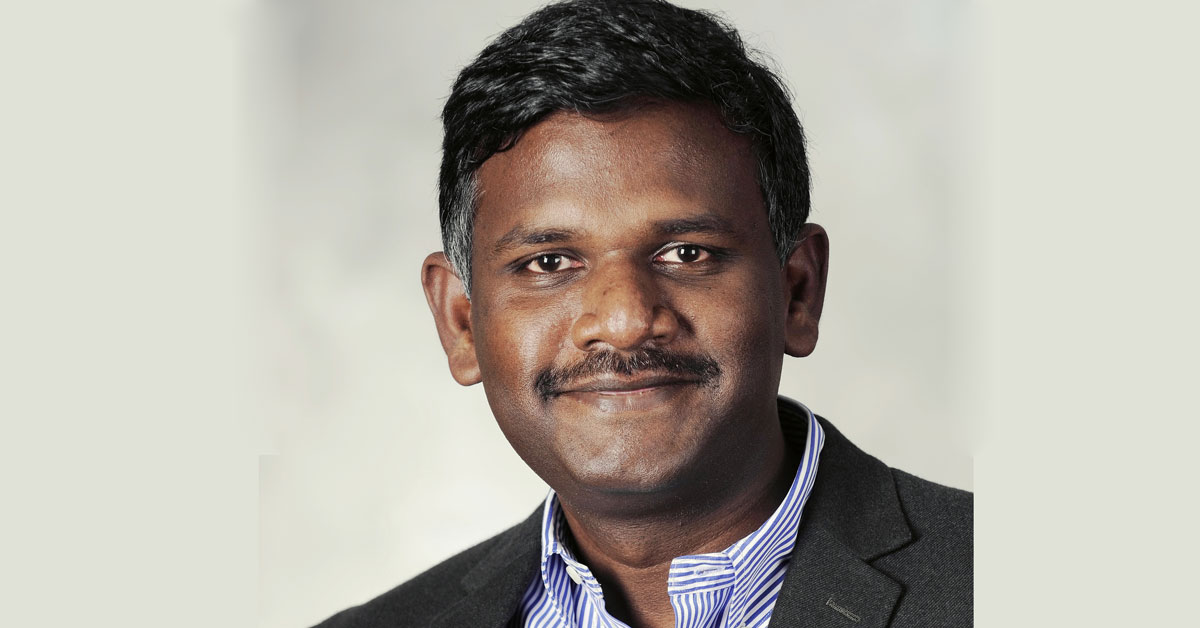Despite the Challenges Posed by the Immigration System, Georgia Tech Professor Helps Dozens of Start-ups Take Flight
Date: July 11, 2016

Back in his native country of India, Dr. Raghupathy Sivakumar says he always dreamed of working for Microsoft or Oracle. “But here,” he says of the United States, “I fell in love with academia.” Dr. Sivakumar, who goes by Siva, did his undergraduate studies in computer science in Chennai, on India’s southeast coast. He quickly realized, however, that he wanted to venture elsewhere. “If I wanted to be at the cutting-edge of my research field,” he explains, “it was a no brainer: I had to be in the States.”
So, in 1996, he packed up his bags in steamy Chennai and moved to Illinois to pursue a PhD degree in computer science at the University of Illinois—Urbana-Champaign. “The first winter I spent there it got to negative 40 degrees Fahrenheit,” Siva recalls. But he says he never had doubts. “I was just thrilled to be at a school that had been involved in producing some of the world’s first computers,” he says. While there, Siva made the most of the opportunity—penning published research and working with DARPA, the advanced research agency for the U.S. Department of Defense. He earned his PhD in just four years. Almost immediately afterwards, Siva joined the Georgia Institute of Technology as a faculty member in electrical and computer engineering department, with a research focus on wireless networks and mobile computing.
Siva says he was drawn to Georgia Tech by Atlanta’s research climate and the top students and postdocs that train at the school. Soon, with the help of such students, Siva’s lab was making breakthroughs. In his early years at Georgia Tech, Siva and his team developed Asankya, a cloud storage network that made it dramatically faster to transfer large data files over the Internet. The data giant EMC bought the company in 2011. Siva says the experience helped him realize the value of entrepreneurship. “It is an amazing moment when you see someone using a product that you built,” he says. The Asankya work also created jobs: Fifteen engineers are still working on the product at an office in Atlanta, half of them U.S.-born. Siva has also participated in the creation of two other start-ups – EGT and StarMobile, both venture-funded as well just like Asankya.
One of the students who founded Asankya with me, he has not gotten his green card, and he is easily one of the best computer engineers I know.
Siva left his experience with Asankya eager to share his start-up knowledge more widely with the students at Georgia Tech. So, he went to the faculty of the school and got their support to start CREATE-X, a campus-wide initiative for student entrepreneurship that formally launched last year. Since CREATE-X’s inception, Siva has already worked with over 40 student start-ups. This year alone, CREATE-X is working with 21. CREATE-X’s ultimate goal is to nurture 100 student start-ups a year.
Siva says through CREATE-X he hopes to make start-ups—and the skills of entrepreneurship more broadly—part of the fabric of undergraduate life. CREATE-X ushers undergraduates through the entrepreneurial process. First students learn the basic tenets of building start-ups. Then they identify a technology barrier and apply for research grants. Finally, they launch a product and chart a path to market.
Siva singles out a couple of breakout start-ups that are on promising expansion paths. Replantable, which he fondly calls a “kitchen-to-table” company, makes an appliance that that grows vegetables in an indoor microclimate. Grubbly Farm, another one of the CREATE-X start-ups, has developed a way to collect organic waste and use it to feed livestock. The company is already working with organic farms in the Atlanta area. And Gimme Vending, one of CREATE-X’s first start-ups, has devised a way to reduce fraud in vending machine collection by using a dongle to collect data on sales, a process once done mostly with pen and paper. After starting with just two founders, Gimme Vending now has over six employees and continues to grow.
But, despite the success of CREATE-X’s work, Siva continues to see one barrier that falls in the way of some of his students’ success: The complications of the U.S. immigration system, especially as it concerns entrepreneurs. “One of the students who founded Asankya with me, he has not gotten his green card,” Siva explains, “And he is easily one of the best computer engineers I know.” That engineer, an Indian native, had his application significantly delayed because of rules that limit the number of green cards that can go to individuals from any one country each year. He’s already waited seven years to get a status that would allow him to remain in the country long-term. “He has a family,” Siva says, “And that uncertainty impacts all of them.”
